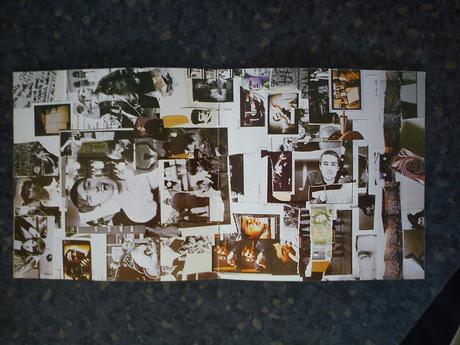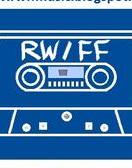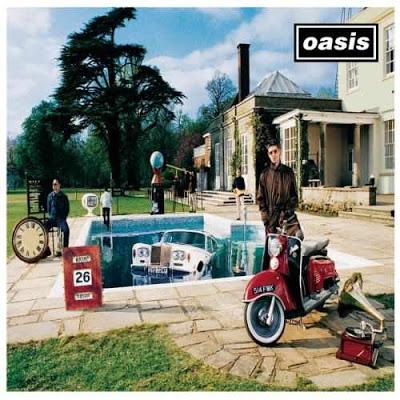 (Article originally written in 2011)
(Article originally written in 2011)14 years ago
Oasis released their hugely-anticipated third LP 'Be Here Now'. Over a decade later in 2011, I revisit the album that after being excessively hyped, divided fans and critics, and effectively led to the decline of Britpop. Plus I take a look back at the record's making, dig out my memories of its monumental release and we see whether hindsight has been kind to the songs or not.'Be Here Now' was unleashed onto the shelves on Thursday 21st August 1997, after the wildest two years of the band's lives. Their second album '(What's The Story?) Morning Glory' transformed them from the coolest new indie rock band into the hugest musical act in Britain, and as well as their unavoidable generation-defining anthems, their reputation for fighting, bad behavior and controversy ensured that the tabloid press were giving them as much free publicity as they needed. By 1996 you couldn't go anywhere without hearing Oasis songs, reading about Oasis in the newspapers, seeing Oasis on telly or hearing people talk about Oasis. They were so huge they were literally everywhere.
It was in the May of 1996 that most of the songs from 'Be Here Now' were supposedly written, during this time of true musical dominance and at the start of a summer that was to be a very eventful one for Oasis. Their gigs had grown from small venues to larger places and now even big arena tours weren't big enough to satisfy people's appetite for the band, such was their popularity. So their shows became massive outdoors spectaculars staged at places such as Maine Road, Loch Lomond and most memorably Knebworth. The two nights Oasis played at Knebworth in August 1996 were THE event of the decade, the biggest band in the UK's most triumphant moment. Over the two nights they played to over quarter of a million fans, and even this massive amount of people was still only a small fraction of the 2,500,000 (plus) people who applied for tickets. Yes that's right, 2,500,000.
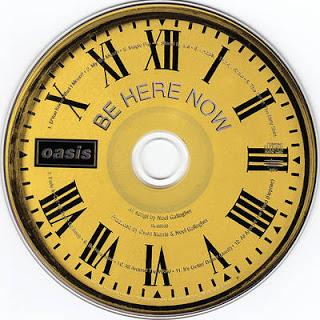 Knebworth was truly the group's zenith, but the emotion and adrenaline of such a huge event clearly took its toll on the band afterwards. They were due to play a show in London for MTV's 'Unplugged' series, but on the day vocalist Liam Gallagher declined to do the gig, complaining of a sore throat. Brother, guitarist and songwriter Noel had to take the role of sole vocalist for the show, which saw Liam watching from the balcony and heckling Noel throughout the set. Four days later Oasis were due to go on a tour of North America but once again Liam pulled out. This time it was so he could stay in England and buy a new house for him and then-girlfriend Patsy Kensit. American fans were understandably very unhappy, and were even more unimpressed when Liam eventually flew out to the States to rejoin the rest of the band, playing a show at the MTV Video Music Awards. During the performance a drunken Liam intentionally sang off key and spat beery saliva, leading to The Sun's next day front page headline "America sickened by obscene Liam's spitting rampage".
Knebworth was truly the group's zenith, but the emotion and adrenaline of such a huge event clearly took its toll on the band afterwards. They were due to play a show in London for MTV's 'Unplugged' series, but on the day vocalist Liam Gallagher declined to do the gig, complaining of a sore throat. Brother, guitarist and songwriter Noel had to take the role of sole vocalist for the show, which saw Liam watching from the balcony and heckling Noel throughout the set. Four days later Oasis were due to go on a tour of North America but once again Liam pulled out. This time it was so he could stay in England and buy a new house for him and then-girlfriend Patsy Kensit. American fans were understandably very unhappy, and were even more unimpressed when Liam eventually flew out to the States to rejoin the rest of the band, playing a show at the MTV Video Music Awards. During the performance a drunken Liam intentionally sang off key and spat beery saliva, leading to The Sun's next day front page headline "America sickened by obscene Liam's spitting rampage". When the tour reached North Carolina, Noel lost his patience with Liam and stormed out of the group. The next day, the tabloids had caught wind of the news and prematurely paid tribute to "the greatest band since The Beatles". I recall The Sun even had a special pull-out section dedicated to the group's career. Maybe that was how it should have ended: a band with a notoriously stormy relationship playing monumentally huge gigs, becoming the biggest musical force in the UK by far, and then splitting up at their peak after a huge bust-up. Instead the rest of the American tour was cancelled so Noel and Liam could make up, put the bickering behind them and concentrate on being a great rock n roll band. But with the group's future clearly subject to the Gallagher brothers bust-ups and with their huge popularity threatening to lead to over-exposure, the band's management were worried that Oasis were a fragile and wildly unstable unit whose future was always going to be uncertain.
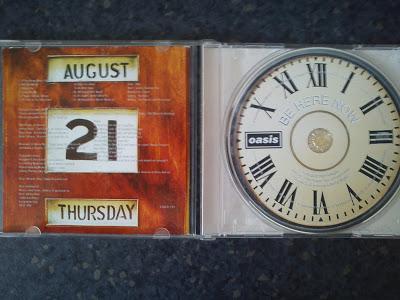 For sure they had definitely become too widely publicised, and for a while I myself got sick of them (especially when lots of narrow minded people considered Blur to be "shit" because Oasis were clearly bigger and more popular than them) and tried to "level things out" by attempting to ignore the band and rave about the popular but far less huge Britpop groups like Cast, Shed Seven, Dodgy, Supergrass and all "that indie lot". But I couldn't ignore Oasis. I didn't play their music that often anymore but that's because it was in serious danger of becoming annoying if it got any more over-played.
For sure they had definitely become too widely publicised, and for a while I myself got sick of them (especially when lots of narrow minded people considered Blur to be "shit" because Oasis were clearly bigger and more popular than them) and tried to "level things out" by attempting to ignore the band and rave about the popular but far less huge Britpop groups like Cast, Shed Seven, Dodgy, Supergrass and all "that indie lot". But I couldn't ignore Oasis. I didn't play their music that often anymore but that's because it was in serious danger of becoming annoying if it got any more over-played.Meanwhile in the world of Oasis, the band felt that to keep themselves at the very top and for them to survive, they should begin recording a new album as soon as possible. So the songs that Noel had written a few months earlier were considered to be good enough to begin recording and to eventually appear on the band's next record.
Right from the start of its recording, the making of 'Be Here Now' was a fractious and troubled process. The band's manager Marcus Russell later said "in retrospect, we went in the studio too quickly. The smart move would have been to take the rest of the year off. But at the time it seemed like the right thing to do. If you're a band and you've got a dozen songs you think are great, why not go and do it?". The sessions began on 7 October 1996 at the iconic Abbey Road Studios, but the first week of recording was according to producer Owen Morris "fucking awful". He suggested to Noel that the session was best abandoned but the response was that things would turn out OK and that they should carry on with work. But as Morris remembers "The only reason anyone was there was the money. Noel had decided Liam was a shit singer. Liam had decided he hated Noel's songs. Massive amounts of drugs. Big fights. Bad vibes. Shit recordings."
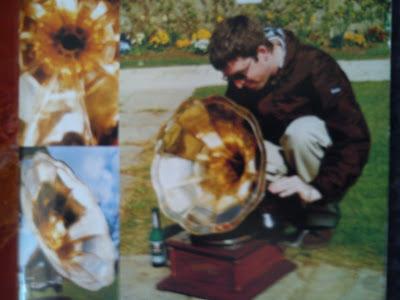 According to Jill Furmanovsky's book 'Was There Then', there were few occasions when all of the band were in the studio at the same time. Relationships between Noel and Liam were still strained, making for a rather bad atmosphere. The constant presence of people in and out of the studio as well as Liam being busted by the police for cocaine possession about a month into the sessions meant that the recordings were taking second place to all the madness going on away from the music. So to cut themselves off from the tabloid press the band moved themselves to a more secluded location to carry on recording the album. However by this time it wasn't just the press that they were attempting to lose, it was the people who knew them as normal folk years before they became famous. Maybe it was because they were paranoid about people trying to sell stories about them or spread rumours about things that the band would have rather kept private. As Creation Records publicist Johnny Hopkins recalls "People were being edged out of the circle around Oasis. People who knew them before they were famous rather than because they were famous.... once you're in that situation you lose sight of reality."
According to Jill Furmanovsky's book 'Was There Then', there were few occasions when all of the band were in the studio at the same time. Relationships between Noel and Liam were still strained, making for a rather bad atmosphere. The constant presence of people in and out of the studio as well as Liam being busted by the police for cocaine possession about a month into the sessions meant that the recordings were taking second place to all the madness going on away from the music. So to cut themselves off from the tabloid press the band moved themselves to a more secluded location to carry on recording the album. However by this time it wasn't just the press that they were attempting to lose, it was the people who knew them as normal folk years before they became famous. Maybe it was because they were paranoid about people trying to sell stories about them or spread rumours about things that the band would have rather kept private. As Creation Records publicist Johnny Hopkins recalls "People were being edged out of the circle around Oasis. People who knew them before they were famous rather than because they were famous.... once you're in that situation you lose sight of reality."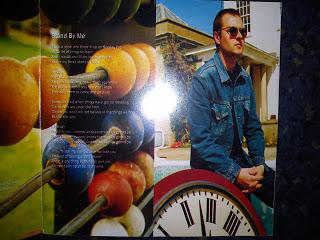 So the sessions resumed at the Ridge Farm studios in Surrey, a much more rural setting away from the madness of the city. But even though the group were displaying more energy than they had during the Abbey Road sessions, the mood was tense, minds seemed to be focused on other things and the band's drug intake was alarming. Not just the band either, as it is often suggested the vast majority of everyone involved with the making of the album were hoovering up silly amounts of white powder. As Owen Morris recalls "in the first week (at Ridge Farm), someone tried to score an ounce of weed, but instead got an ounce of cocaine. Which kind of summed it up."
So the sessions resumed at the Ridge Farm studios in Surrey, a much more rural setting away from the madness of the city. But even though the group were displaying more energy than they had during the Abbey Road sessions, the mood was tense, minds seemed to be focused on other things and the band's drug intake was alarming. Not just the band either, as it is often suggested the vast majority of everyone involved with the making of the album were hoovering up silly amounts of white powder. As Owen Morris recalls "in the first week (at Ridge Farm), someone tried to score an ounce of weed, but instead got an ounce of cocaine. Which kind of summed it up." 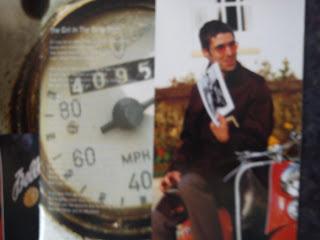 Those around Noel found it difficult to express the fact that maybe they didn't think that much of the new songs and that this project wasn't shaping up that well. Or maybe everyone was so high on coke that every single note sounded like genius. Owen Morris himself had doubts about the quality of the new material and suggested to Noel that the songs could be a lot better, but his opinion was dismissed and was just "cut down" by Noel. So instead of raising any further issues he "just carried on shovelling drugs up my nose." Creation head honcho Alan McGee visited the studio during the mixing stage and remembered "I used to go down to the studio, and there was so much cocaine getting done at that point ... Owen was out of control, and he was the one in charge of it. The music was just fucking loud."
Those around Noel found it difficult to express the fact that maybe they didn't think that much of the new songs and that this project wasn't shaping up that well. Or maybe everyone was so high on coke that every single note sounded like genius. Owen Morris himself had doubts about the quality of the new material and suggested to Noel that the songs could be a lot better, but his opinion was dismissed and was just "cut down" by Noel. So instead of raising any further issues he "just carried on shovelling drugs up my nose." Creation head honcho Alan McGee visited the studio during the mixing stage and remembered "I used to go down to the studio, and there was so much cocaine getting done at that point ... Owen was out of control, and he was the one in charge of it. The music was just fucking loud." In a quote from Jill Furmansky's 'Was There Then' Owen Morris remarked "the album sounded great fueled by twelve pints of lager." He obviously meant a lot more than just the alcohol.... The sessions were moved to Air Studios where the group found themselves being a bit more productive, but mainly because most of the work on the new material had already been done.
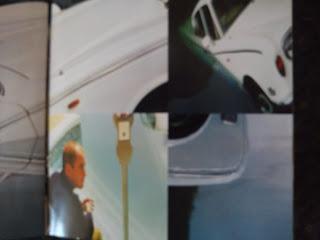 Then at the very beginning of May 1997 work was finished, the record was complete and the news was official: the new Oasis album was on its way. Feeling glad that the band had managed to last long enough to complete their new LP without splitting up, I brought all my old Oasis CDs out again and began preparing for the release of some brand new songs. I'd been reading lots of rumours in the tabloid papers about what the new songs would be like, and during the album's recording the band were probably very wary of spies managing to record parts of the new material as it was being worked on. There was lots of talk about this record: was it going to be as good as the last one? Was it going to be the biggest selling album of all time? Would it be a brand new direction for Oasis?
Then at the very beginning of May 1997 work was finished, the record was complete and the news was official: the new Oasis album was on its way. Feeling glad that the band had managed to last long enough to complete their new LP without splitting up, I brought all my old Oasis CDs out again and began preparing for the release of some brand new songs. I'd been reading lots of rumours in the tabloid papers about what the new songs would be like, and during the album's recording the band were probably very wary of spies managing to record parts of the new material as it was being worked on. There was lots of talk about this record: was it going to be as good as the last one? Was it going to be the biggest selling album of all time? Would it be a brand new direction for Oasis? 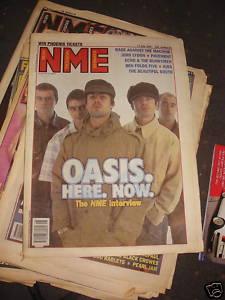 As I got more and more excited about the forthcoming new album I started buying the NME on a regular basis mainly to keep up to date with more in-depth news about it, and this soon led to me buying the paper every week up until the early 2000s. But Ignition (the band's management) began acting very secretively about the new record, and wouldn't allow the media any prior information about the album, fearful that the more people knew, the more it would would make the release build-up go on for months and become out of control. Ignition's tactics backfired and due to the big secrecy around 'Be Here Now', the build up and the hype would (as predicted) become utterly out of control. When asked by the NME what the new material was like, Noel was only able to say: "It sounds brilliant. It's quite varied, really. The single sounds sort of like, it's a lot heavier than '... Morning Glory?'. The single's... no, I can't tell you what the single is. Every time you get me to say stuff - I'm fucking telling you, I'm such a nice guy - me fucking press officer bollocks me when I get back to the office. No, I can't tell you, I'm not going to tell you."
As I got more and more excited about the forthcoming new album I started buying the NME on a regular basis mainly to keep up to date with more in-depth news about it, and this soon led to me buying the paper every week up until the early 2000s. But Ignition (the band's management) began acting very secretively about the new record, and wouldn't allow the media any prior information about the album, fearful that the more people knew, the more it would would make the release build-up go on for months and become out of control. Ignition's tactics backfired and due to the big secrecy around 'Be Here Now', the build up and the hype would (as predicted) become utterly out of control. When asked by the NME what the new material was like, Noel was only able to say: "It sounds brilliant. It's quite varied, really. The single sounds sort of like, it's a lot heavier than '... Morning Glory?'. The single's... no, I can't tell you what the single is. Every time you get me to say stuff - I'm fucking telling you, I'm such a nice guy - me fucking press officer bollocks me when I get back to the office. No, I can't tell you, I'm not going to tell you."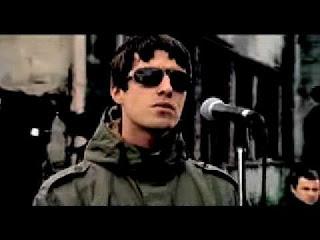 In the days before the internet I kept myself updated with music news on a daily basis thanks to Channel 4's 'Planet Sound', a section of Teletext dedicated to music. As I recall it was through 'Planet Sound' that I first saw the news that the new Oasis single was going to be called 'D'You Know What I Mean' and it was to be released on 7th July 1997. The sprawling lead track from the album must have annoyed a lot of radio stations, having this overlong, dark heavy product of ego taking up the amount of airtime you could usually fit three songs into. But the radio had no choice but to play it: Oasis were huge and a phenomenon that was impossible to ignore.
In the days before the internet I kept myself updated with music news on a daily basis thanks to Channel 4's 'Planet Sound', a section of Teletext dedicated to music. As I recall it was through 'Planet Sound' that I first saw the news that the new Oasis single was going to be called 'D'You Know What I Mean' and it was to be released on 7th July 1997. The sprawling lead track from the album must have annoyed a lot of radio stations, having this overlong, dark heavy product of ego taking up the amount of airtime you could usually fit three songs into. But the radio had no choice but to play it: Oasis were huge and a phenomenon that was impossible to ignore. 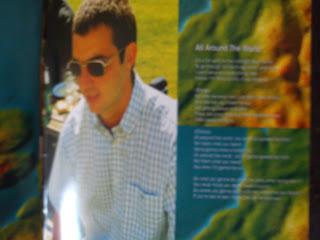 On a Friday evening in June 1997 I had been at school all day and had heard the news that the new Oasis song had finally been played on radio. While sat in my Mum's car waiting for her to finish the shopping I was tuned into Radio One still waiting to hear the song and then it came on, finally the brand new Oasis single. I didn't expect it to sound so huge, it was like some powerful, lumbering monster. Packed with exciting backwards guitar and massive, slow echo-drenched drums and with strange psychedelic lyrics, the track was almost like a fierce, snarling relative of 'Wonderwall' but minus any sentimentality.
On a Friday evening in June 1997 I had been at school all day and had heard the news that the new Oasis song had finally been played on radio. While sat in my Mum's car waiting for her to finish the shopping I was tuned into Radio One still waiting to hear the song and then it came on, finally the brand new Oasis single. I didn't expect it to sound so huge, it was like some powerful, lumbering monster. Packed with exciting backwards guitar and massive, slow echo-drenched drums and with strange psychedelic lyrics, the track was almost like a fierce, snarling relative of 'Wonderwall' but minus any sentimentality. 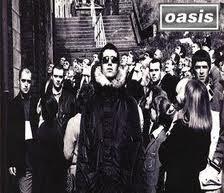 I absolutely loved the single and to this day I still do. But what was it trying to say? It was also very long, but then again I didn't expect it to be a three minute pop song because I knew Oasis had much grander ambitions now. It had a sound and length that was certainly aware of its own self-importance, swaggering with an almost threatening confidence. Noel later said of the track "Its eight and a half minutes, the first single, the drums haven't fuckin' come in for two minutes- its all feedback!". So big were Oasis that even their B sides would be put on Radio One's playlist, and the single's second track 'Stay Young' was a lot more upbeat and brighter than the single. It was played a lot on the radio although this was apparently due to the "weirdness" of its A-side. 'Angel Child' was an acoustic number sung by Noel and was also played on the radio, with Mark Radcliffe and Marc Riley labelling it "a bit of a crap one". I myself thought it was excellent and undoubtedly should've been on the album. When the single hit the shops I went to my local Woolworths on the first day of its release and made sure I was one of the first to get my hands on it.
I absolutely loved the single and to this day I still do. But what was it trying to say? It was also very long, but then again I didn't expect it to be a three minute pop song because I knew Oasis had much grander ambitions now. It had a sound and length that was certainly aware of its own self-importance, swaggering with an almost threatening confidence. Noel later said of the track "Its eight and a half minutes, the first single, the drums haven't fuckin' come in for two minutes- its all feedback!". So big were Oasis that even their B sides would be put on Radio One's playlist, and the single's second track 'Stay Young' was a lot more upbeat and brighter than the single. It was played a lot on the radio although this was apparently due to the "weirdness" of its A-side. 'Angel Child' was an acoustic number sung by Noel and was also played on the radio, with Mark Radcliffe and Marc Riley labelling it "a bit of a crap one". I myself thought it was excellent and undoubtedly should've been on the album. When the single hit the shops I went to my local Woolworths on the first day of its release and made sure I was one of the first to get my hands on it. Noel said in 2010 "The song was eight and a half minutes long and I refused to edit it, because I was so full of self importance". By the end of the week the single was inevitably a number one hit, and had sold a staggering 370,000 copies in the first week, 162,000 of those in its first day of release. So an awesome single and two amazing B-sides... if these are only the B sides to the first single then the album is bound to be amazing....
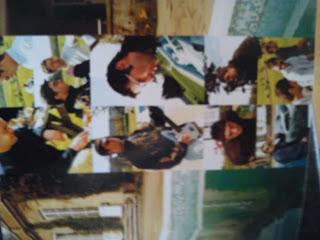 The press were having to try very hard to uncover the truth about the record, due to the tactics employed by the band's management to control pre-release exposure. Upon hearing the new songs at Noel's house, three key staff at Creation (Alan McGee, Johnny Hopkins and Emma Greengrass) all had their doubts about the new material but kept their thoughts to themselves. Alan McGee later admitted that he had massive doubts about the artistic value of the album: "I heard it in the studio and I remember saying 'We'll only sell seven million copies'... I thought it was too confrontational." However in an interview a few days after hearing it, he predicted it would sell twenty million copies, a comment that alarmed the band's management since McGee's public opinions on the album were sounding very hyperbolic. This led to the band and their management excluding him from any involvement in the release campaign, since they wanted to limit publicity and withhold access to the new music and any information about it.
The press were having to try very hard to uncover the truth about the record, due to the tactics employed by the band's management to control pre-release exposure. Upon hearing the new songs at Noel's house, three key staff at Creation (Alan McGee, Johnny Hopkins and Emma Greengrass) all had their doubts about the new material but kept their thoughts to themselves. Alan McGee later admitted that he had massive doubts about the artistic value of the album: "I heard it in the studio and I remember saying 'We'll only sell seven million copies'... I thought it was too confrontational." However in an interview a few days after hearing it, he predicted it would sell twenty million copies, a comment that alarmed the band's management since McGee's public opinions on the album were sounding very hyperbolic. This led to the band and their management excluding him from any involvement in the release campaign, since they wanted to limit publicity and withhold access to the new music and any information about it. 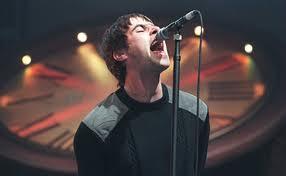 Due to the band's stature they were very aware of the dangers of over-hype and possible bootlegging. The band's management decided that their aim was to present the record as a "regular, everyday collection of tunes"and toning promotional activities such as street posters and adverts in music papers, avoiding mainstream instruments such as billboard and TV advertising. However the group's management went way too far when it came to covering up information, and when word got out that they were going to extraordinary lengths to control access to the album, everyone wondered what the big secrecy was in aid of. Plus of course this actually served to create more hype, as news and rumours about the new material were becoming even more widespread then they would have been already. It had certainly made me even more curious about what the new record would sound like, and my curiousity had led to me becoming an NME reader and before too long the release of 'Be Here Now' served as an introduction to Radio One's Evening Session.
Due to the band's stature they were very aware of the dangers of over-hype and possible bootlegging. The band's management decided that their aim was to present the record as a "regular, everyday collection of tunes"and toning promotional activities such as street posters and adverts in music papers, avoiding mainstream instruments such as billboard and TV advertising. However the group's management went way too far when it came to covering up information, and when word got out that they were going to extraordinary lengths to control access to the album, everyone wondered what the big secrecy was in aid of. Plus of course this actually served to create more hype, as news and rumours about the new material were becoming even more widespread then they would have been already. It had certainly made me even more curious about what the new record would sound like, and my curiousity had led to me becoming an NME reader and before too long the release of 'Be Here Now' served as an introduction to Radio One's Evening Session.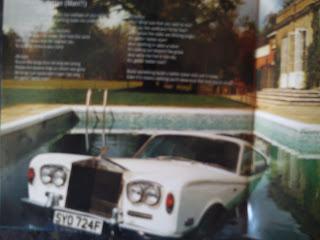 I don't recall hearing The Evening Session prior to 1997 but the news had been confirmed that three tracks from the new Oasis album were to be played exclusively on the show, which marked the very first time I had tuned in to Steve Lamacq's legendary 1990's indie programme. The Evening Session was given the songs ten days before the LP's release, on condition that Lamacq talked over the tracks to prevent illegal copies being made by listeners. As I recall the three songs were 'The Girl In The Dirty Shirt', 'Be Here Now' and 'All Around The World', and (as the band's management predicted) I recorded the songs onto a cassette tape, as I expect many others did too.
I don't recall hearing The Evening Session prior to 1997 but the news had been confirmed that three tracks from the new Oasis album were to be played exclusively on the show, which marked the very first time I had tuned in to Steve Lamacq's legendary 1990's indie programme. The Evening Session was given the songs ten days before the LP's release, on condition that Lamacq talked over the tracks to prevent illegal copies being made by listeners. As I recall the three songs were 'The Girl In The Dirty Shirt', 'Be Here Now' and 'All Around The World', and (as the band's management predicted) I recorded the songs onto a cassette tape, as I expect many others did too.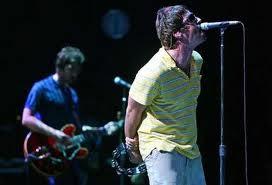 The tape accompanied me on a seaside hoilday during the weeks leading up to the album's release and was played a lot. But even though I was initially pleased I was kind of hoping these tracks weren't the best moments on the record and that better stuff was yet to come. The day after The Evening Session previewed the songs, Steve Lamacq received a phone call informing him that he would not be able to preview further tracks because he didn't speak enough over the songs. Lamacq said, "I had to go on the air the next night and say, 'Sorry, but we're not getting any more tracks.' It was just absurd." When Creation publicist Johnny Hopkins began to circulate cassette copies of the album to the music press, he required that each journalist sign a contract containing a clause requiring that the cassette recipient would "not discuss the album with anyone-including your partner at home" According to Select journalist Mark Perry "It basically said don't talk to your girlfriend about it when you're at home in bed." It was tactics like these that resulted in the alienation of members of both the music and mainstream media, as well as many people within the music industry. The desperate attempts to limit pre-release access only fueled the large scale speculation, and turned the "regular everyday" campaign into the complete opposite.
The tape accompanied me on a seaside hoilday during the weeks leading up to the album's release and was played a lot. But even though I was initially pleased I was kind of hoping these tracks weren't the best moments on the record and that better stuff was yet to come. The day after The Evening Session previewed the songs, Steve Lamacq received a phone call informing him that he would not be able to preview further tracks because he didn't speak enough over the songs. Lamacq said, "I had to go on the air the next night and say, 'Sorry, but we're not getting any more tracks.' It was just absurd." When Creation publicist Johnny Hopkins began to circulate cassette copies of the album to the music press, he required that each journalist sign a contract containing a clause requiring that the cassette recipient would "not discuss the album with anyone-including your partner at home" According to Select journalist Mark Perry "It basically said don't talk to your girlfriend about it when you're at home in bed." It was tactics like these that resulted in the alienation of members of both the music and mainstream media, as well as many people within the music industry. The desperate attempts to limit pre-release access only fueled the large scale speculation, and turned the "regular everyday" campaign into the complete opposite. 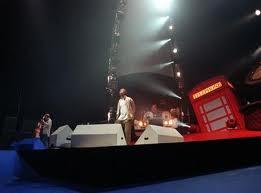 The release date in the UK was to be the 21st of August, on a Thursday rather than the usual Monday release day. The date had been brought forward to Thursday rather than the following Monday due to Ignition's fear that import copies of the CD from the States would arrive in the UK before the country's official release date. Ignition were also worried about TV news interviewing fans queuing to buy the record, so instead of record shops having a then-traditional midnight opening session for the release of the new album, Ignition forced retailers to sign contracts pledging not to sell the new LP earlier than 8am on the Thursday morning. I still can't figure out why the band's management were so afraid of news crews interviewing fans before they'd heard the record. Bizarre.
The release date in the UK was to be the 21st of August, on a Thursday rather than the usual Monday release day. The date had been brought forward to Thursday rather than the following Monday due to Ignition's fear that import copies of the CD from the States would arrive in the UK before the country's official release date. Ignition were also worried about TV news interviewing fans queuing to buy the record, so instead of record shops having a then-traditional midnight opening session for the release of the new album, Ignition forced retailers to sign contracts pledging not to sell the new LP earlier than 8am on the Thursday morning. I still can't figure out why the band's management were so afraid of news crews interviewing fans before they'd heard the record. Bizarre. A video of a 1997 news report on the album's release is here.
In 2010 Noel remembers the state of affairs at the time: "there was a lot of bullshit around this album. People could listen to it but they weren't allowed to tell anybody they'd heard it, and it was fucking nonsense. It was very, very embarassing. Nothing to do with anyone in the band, I might add. I think we copped a lot of flak for that. shit like that really annoys me when I think about it now. People were getting so up their own arses about it at the time. I remember somebody on the Channel 4 News holding up the cover and saying "We've got it, we're not allowed to say we've heard it but this is the cover." It was embarassing. but it was mad as fuck.... no wonder we thought we were superhuman beings."
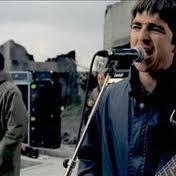
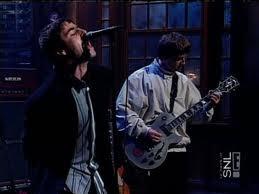
The night before the album's release, the BBC broadcast an exclusive documentary called 'Right Here Right Now', featuring the story of Oasis, the story behind the new material, as well as the band performing some tracks from the new record. An acoustic version of 'Stand By Me' and a massive live rendition of 'It's Gettin' Better (Man!!)' were the bits I remember most.
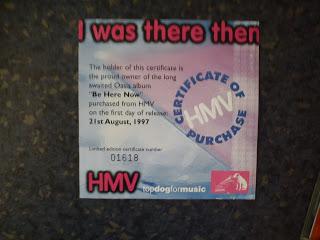
After bringing the album home to listen to I sat in the armchair of my old front room, near to the stereo and didn't move for over 70 minutes. Not because I was so transfixed by the brilliance of the songs that I couldn't tear myself away from it, but because I was sitting waiting patiently for a moment of brilliance, something to justify the massive storm of hype behind this collection of songs.
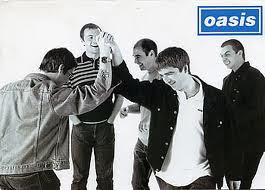
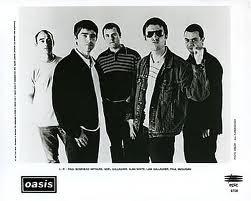
"We were having so much fun in the studio" says Noel "such a good time that quality control went out the door a bit. We weren't analysing anything, we were just like "that's fucking brilliant, let's have it", and of course all the people around us were saying the same thing: "No, it IS brilliant.""
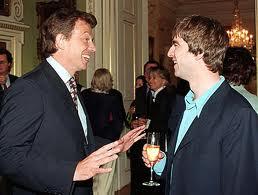
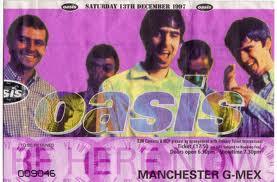
But even though the band were huge and Noel knew that "even if i fart, it'll go top ten", it was hard for Oasis to take any significant musical risks. Their songs were all built on simple chords, uncomplicated lyrics and direct anthemic choruses, and this was a formula that had made them so popular. Knowing they couldn't risk changing that style and knowing that they couldn't possibly make tunes that were any more anthemic than the first 2 albums, it seemed the only way the group could progress was by making everything louder and longer. "I think me and Owen got a bit lazy in the studio" said Noel just before the album's release, "that’s my opinion and I’m allowed to say it - nobody else is. We weren’t taking too many risks."
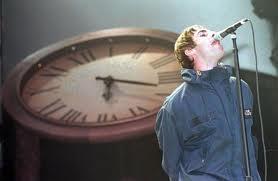
The record starts brilliantly with 'D'You Know What I Mean', setting the tone well and tricking everyone into thinking that the rest of the album's going to be as good. When 'My Big Mouth' bursts in with an alarming wall of guitars and thumping drums, it's so far so good. Perhaps the heaviest of all Oasis moments, Liam's vocals are incredible and commanding, and the crunching hard rock riff is straight forward but offers an exciting menace that there should have been a lot more of on this record. 'Magic Pie' begins in an odd, slightly psychedelic manner. Promising, until the first verse comes in and the song begins to sound rather bland. The totally uninspired bridge arrives and then the chorus really doesn't know what to do with itself: "You see me I've got my magic pie, think of me yeah, that was me I was that passer by". Really? Is this what we waited all that time for? Even more alarmingly prior to the album's release Noel was very enthusiastic about the song..... When asked what he thought his very best songs were he replied "‘Live Forever’. ‘Don’t Look Back In Anger’. ‘Wonderwall’. ‘Champagne Supernova’. ‘The Masterplan’. ‘Magic Pie’." It really isn't hard to pick the odd one out of that list. So where did the line "There are but a thousand days preparing for a thousand years" come from? "I borrowed it from Tony Blair's speech at the Labour Party conference last autumn." Yes, of course the famous lyrical inspiration of Tony Blair.
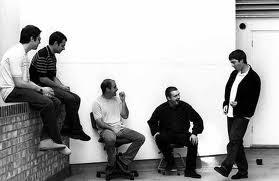
For me the main fault with 'Be Here Now' is not the ridiculous over-production or the way the songs are padded out like stuffing tissues down a bra to make what's inside it look bigger. No, the thing that annoys me most about the record is the enormous sag right in the middle of its tracklisting. 'Stand By Me' is followed not by an equally brilliant song, but by a track that even Noel said was only on the album "for balance because it's quite fast." 'I Hope I Think I Know' begins in quite a bright upbeat manner, suggesting that this could be another 'Roll With It'-style anthem. The verse is tuneful, with the band's trademark attitude taking on a sprightly lively melody, and Liam's vocal are again terrific: "they're trying hard to put me in my place, and that is why I've gotta keep running..." the bridge builds it up further, promising a great chorus but then things take a turn for the worst. Like 'Magic Pie', this chorus just doesn't know where to go, it dithers and staggers around for a bit and then just cops out completely. Such a let down. Years later, one lyric in particular brings to mind the false fame enjoyed by the current crop of pop superstars: "what did it cost you to wear my crown?"
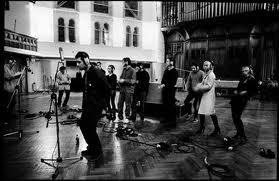
'Don't Go Away' is thankfully a lot better. It's one of Noel's finest ballads and for once the string section is toned down to a provide a charming effect rather than a bombastic one. The guitars are also restrained to mainly a simple chime that plays throughout and doesn't ever become repetitive or over the top. The acoustic outro is delicately stunning and adds the quiet, humble touch that the album badly needed. However, like 'Stand By Me' it is indeed a big anthem and a beautiful song but it comes across as very weary and suggests that the mood within the band had become emotionally tired. The fierce title track is also another highlight, it has the swagger, an awesome snarling vocal from Liam, a dirty rock n roll riff and comes across as a swampy, boogified take on 'Columbia' if it were played by The Rolling Stones. some people love it, some people hate it. I think it's a great song and don't see why it shouldn't stand up to anything from the first two albums.
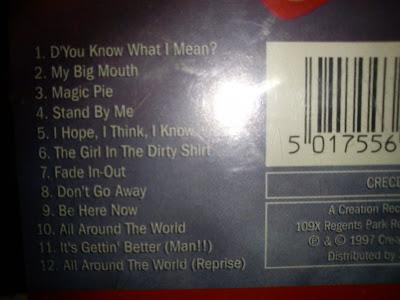
'It's Gettin' Better (Man!!)' was for quite a few years one of my least favorite Oasis tracks and one of the ones that I thought let this album down. Something must have changed over the years because I hear it now and it sounds fantastic. It really is the ultimate party anthem. Built on the same Status Quo-like pub rock, this was like 'Roll With It' but a hundred times bigger and with sentiments that sum up the mood of those crazy times perfectly. The joyous sound of decadence, and with a vibe that sounds like the clock is ticking on their time at the top, it has this wild, hedonistic sound that suggests it was recorded entirely during one of their big cocaine parties. But is there any need for Liam to sing "we're getting better man" sung no less than 29 times during its excessive outro? Yes I did actually count the amount of times it was repeated. Twenty nine times. What were they thinking? As if nine minutes of it wasn't long enough 'All Around The World' returns at the end of the record as a brief reprise and this time it's gained a huge brass section and lots of 'Penny Lane'-esque trumpets. You get the sense that if it didn't fade out it would still be continuing 19 years later. As the last song on the album fades we hear footsteps walking down a corridor and then a door closing. Many people have their theories on this, but to me it symbolises Oasis closing the door on the Britpop party and spelling the end of a golden era. In hindsight it could also be closing the door on the first chapter of the Oasis story and signalling new challenges ahead.
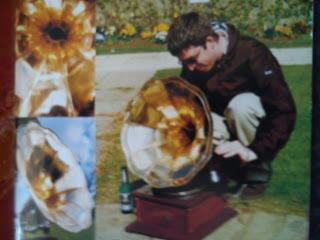
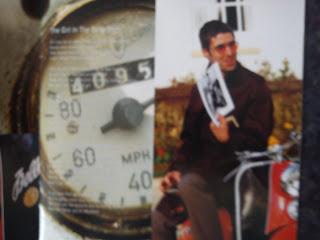
Despite the disappointment felt by many fans and critics, 'Be Here Now' became the UK's fastest selling album of all time. It shifted in excess 420,000 units on the first day of release, and within three days it had sold over 696,000 easily making number one in the album charts. The record was top of the charts in many countries around the world and also debuted at number two on the Billboard charts in the United States.
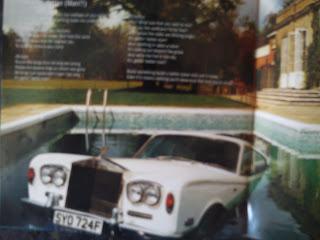
Before too long 'Be Here Now' earned the misfortune of becoming the album most sold to second-hand record stores in the UK. Fast forward a few years and Noel had cleaned up his out of control cocaine habit, having learned a harsh lesson. In his newly sober state he was finally able to assess 'Be Here Now' properly: "It's the sound of a bunch of guys, on coke, in the studio, not giving a fuck. There's no bass to it at all, don't know what happened to that ... And all the songs are really long, all the lyrics are shit and for every millisecond Liam is not saying a word, there's a guitar riff in there in a Wayne's World style." Noel's criticisms of his most controversial work weren't just limited to the one comment either, in fact he has stuck the boot in to BHN many times over the years: "It was an album mixed on cocaine. That's why it sounds like it does. Loads and loads of trebly guitars...I wasn't prepared to make things any better. I'd get to a certain point and go, 'Fuck it, that'll do.' We made the record to justify the drug habit."
Years later Q Magazine (who gave it full marks in 1997) revisited the record and came to the conclusion that "So colossally did Be Here Now fall short of expectations that it killed Britpop and ushered in an era of more ambitious, less overblown music". Meanwhile journalist Garry Mulholland reckoned "the fact that nothing could have lived up to the fevered expectations that surrounded its release doesn't change the facts. The third Oasis album is a loud, lumbering noise signifying nothing." But at least the album DOES still have one big fan... "it's a top record man" said Liam, "and I'm proud of it.... it's just a little bit long." In truth BHN was a good album bogged down by four weak tracks, the excessive length and over-production of its other songs, and the fact that it didn't live up to the ridiculous hype that surrounded its release.
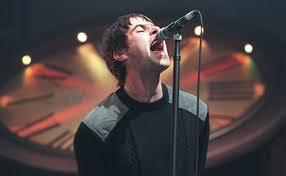
The record may have been a disappointment, but it was Britpop's last stand. The dying days of carefree fun, great music and a giddy, wide eyed, optimistic era when the UK was getting loaded and having a good time. Those days may be long gone but at least I can say that I Was There Then.
